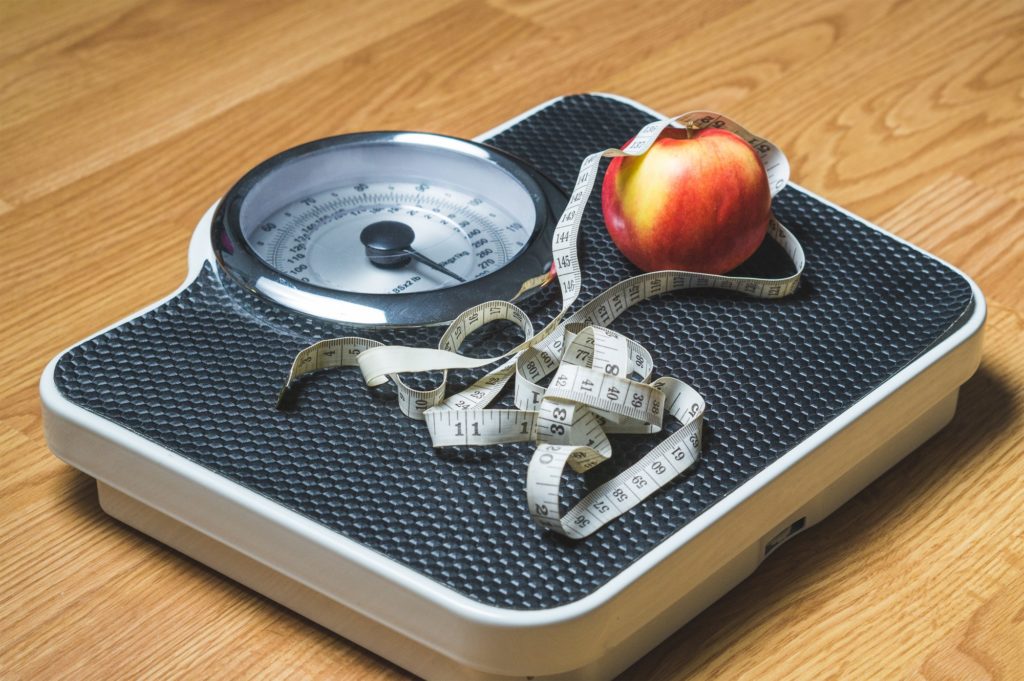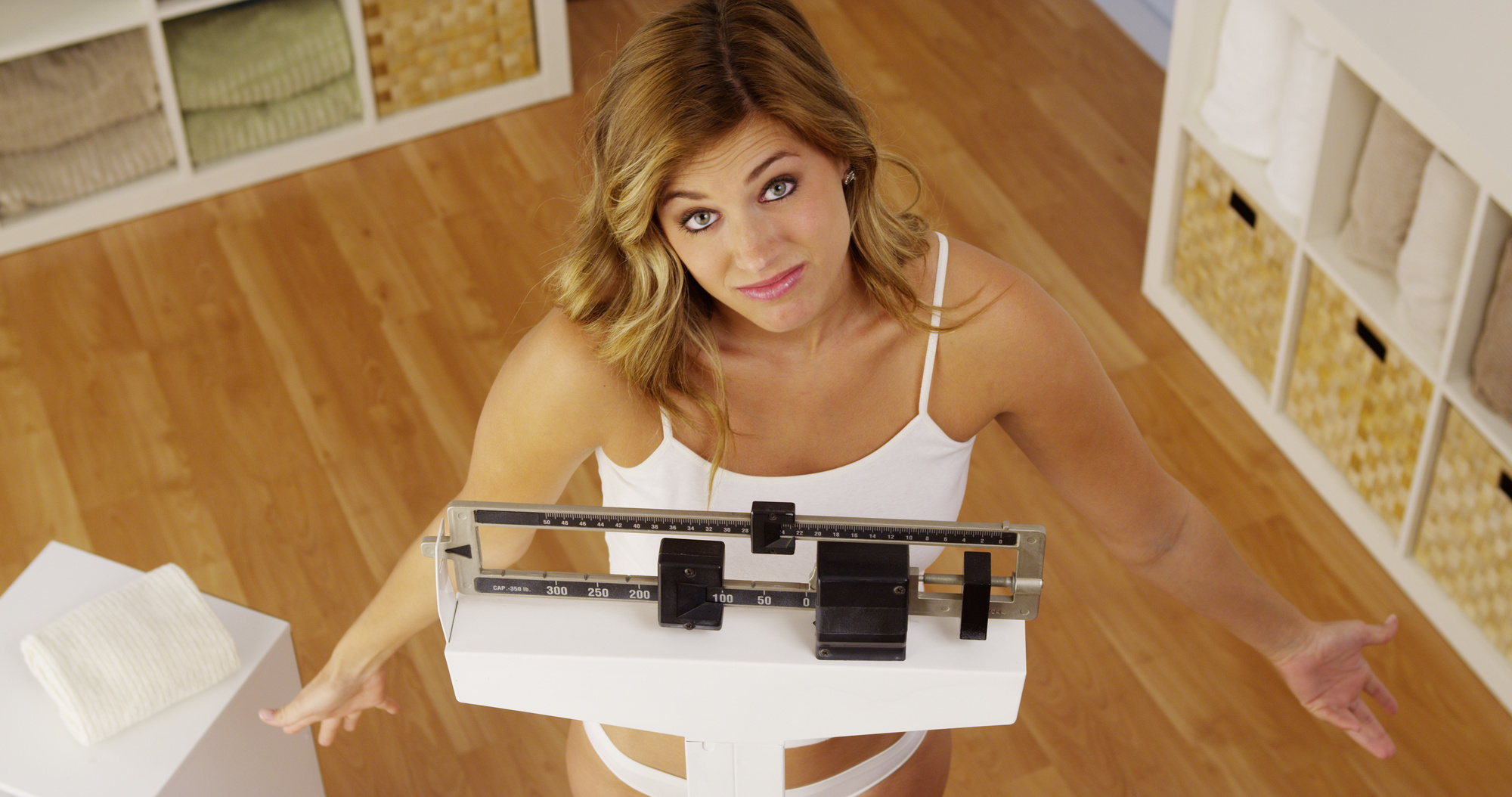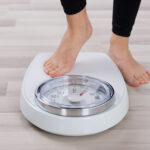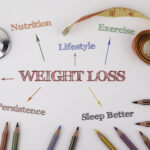
The bathroom scale can be the biggest frenemy in our weight loss journey.
Most of us have been conditioned to believe that the number it displays is the greatest indicator of how healthy we are. We also tend to get discouraged when we hop on that scale and see that our weight has suddenly jumped up for no real reason.
The truth is if your scale had its own theme song it would be “The Great Pretender.” Even though a study showed that weighing yourself daily can actually lead to weight loss, you need to keep in mind that the number can be deceiving.
Here’s what you need to keep in mind about your scale and how it can lie to you during your weight loss journey.
You May Be Gaining Muscle
You’re eating healthy, working out regularly, and incorporating strength training into your regimen. Then you hop on the scale and–gasp!–discover you’ve gained a few pounds when you should have lost some. What does this mean?
It most likely means you’ve gained some muscle in your body, which is a very good thing and something to celebrate.
Does a scale measure only fat? Of course not. Its only function is to tell you your weight, period.
So when we see that number we have to take into account the scale is measuring our entire body composition.
Our bodies are not just made of fat. They contain water, blood, organs, muscles, and more. Half of our body weight alone is contributed by water.
Seeing the weight inch up a little after weeks of working out with weights and using your body weight is a good sign, actually. It means your muscle mass is growing and you’re getting leaner.
This is why it’s possible for some people to drop a clothing size or two while remaining the same weight or even seeing it increase. They’ve gained muscle while burning off some of the fat in their body.
Your Weight Changes Throughout the Day
Weigh yourself several times during the day and chances are you’ll never get the same number twice. Your weight fluctuates with how much water your body is retaining, whether you just ate a meal, and–ahem–if you need to poop.
All three actually contribute to extra weight you’re carrying around.
Bloating, in particular, can actually make the scale go up. For women, the body likes to hold onto extra water just before or during a menstrual cycle thanks to elevated estrogen levels. While this sensation can make you feel like you’ve gained fat, it’s really water retention making you feel like a puffer fish.
Eating foods high in sodium can also lead to water retention, bloating, and weight gain.
Traveling can also cause bloating; the plane’s dry atmosphere can dehydrate you and cause the body to hold onto water. Your circadian rhythm also may get thrown out of whack which affects your digestion and can lead to water weight gain.
A heavy undigested meal may also be making number on the scale higher. It’s safe to say that weighing yourself after a Thanksgiving dinner may not be a good time to get an accurate weight reading.
Instead, weigh yourself consistently at the same time every day. Ideally, when you first wake up is when most people weigh themselves. Take your weight after urinating and before you have breakfast or your morning cup of coffee for the most accurate results.
Modern Scales Aren’t So Precise
If you tried weighing yourself on several different scale models including the one at your doctor’s office, you’d probably receive different readings. The truth is the modern scale actually isn’t the most precise instrument for measuring weight. This is according to a British engineer who explains that the technology is a little outdated.
Most scales sold in stores today still rely on outdated spring technology that was developed in the 17th century. The weight pushed against a coil or spring in the scale activates the needle to go up and land on a number.
The scale at your doctor’s office is currently the most accurate one because it has less moving parts. Home scales can also be affected by a room’s temperature and moisture levels. Keeping yours in the bathroom may not be the best place to gain an accurate reading.
Make sure it’s also on a flat, hard surface. Placing it on a rug or carpeting won’t lead to the most accurate readings.
Fat Loss Doesn’t Happen Immediately
Have you ever gone the extra mile at the gym or during a workout and then got on the scale, hoping to see an ideal number? Chances are you were disappointed.
That’s because fat loss isn’t something that happens overnight and certainly not immediately. It takes time for your body and metabolism to burn calories and fat. It also requires staying consistent with a fitness routine and healthy meal plan in order to eventually experience results.
Any difference in weight you do see following a rigorous workout is most likely weight loss through sweat. If you’ve been drinking water during or after the workout you’ve offset this “loss” anyway.
Again, avoid the temptation to weigh yourself following physical activity. Try to remain consistent with weighing yourself at the same time of the morning before eating or drinking anything.
Making Peace With Your Bathroom Scale
Now that you know a little bit more about how the number on your bathroom scale can fool you, hopefully you’re breathing a sigh of relief. Quite often a higher-than-expected number doesn’t indicate you’re doing anything wrong.
If you found this article helpful, then you may enjoy reading our other content about weight loss tips, exercise plans, and healthy meal ideas to help you reach your healthy lifestyle goals.
Be sure to read our blog for the latest posts!












